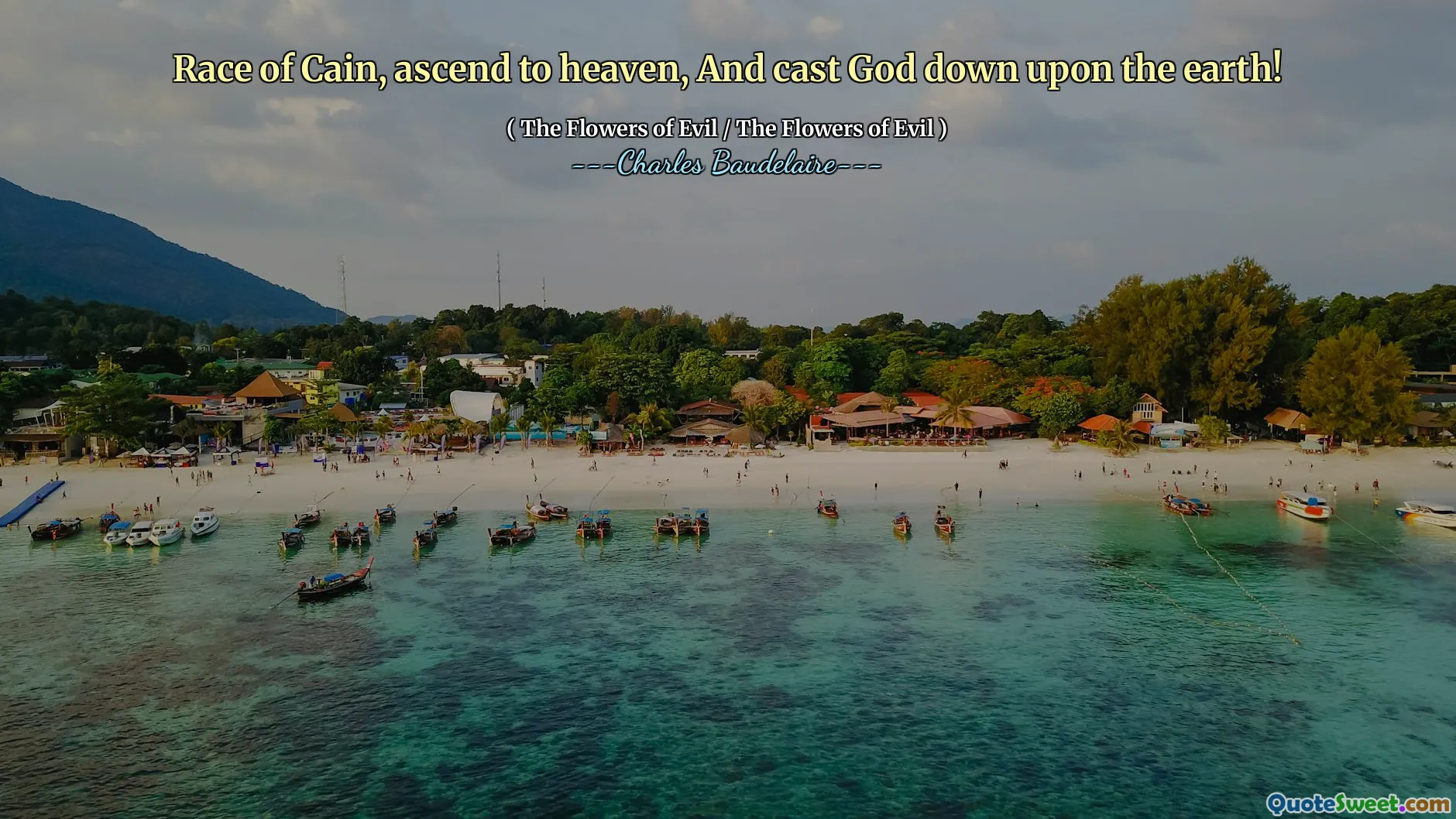
Race of Cain, ascend to heaven, And cast God down upon the earth!
This quote from Charles Baudelaire's "The Flowers of Evil" carries a profound and provocative message. It evokes the biblical figure of Cain, known primarily for committing the first murder by killing his brother Abel. The phrase "Race of Cain" symbolizes a lineage or group marked by rebellion and exile, outcasts who challenge the divine order. Invocation to 'ascend to heaven' suggests a paradoxical aspiration: to reach the divine realm typically reserved for the righteous and pure, despite being inherently flawed or condemned. The latter part, "And cast God down upon the earth!" reverses the traditional hierarchy between God and man. Whereas humanity traditionally is subordinate to God, here the call is for a dramatic upheaval—dethroning the divine and bringing the godly down to the earthly plane.
This subversive statement reflects themes of defiance, existential rebellion, and struggle against imposed moralities or divine authority. Baudelaire, a poet often preoccupied with the duality of beauty and evil, uses this quote to suggest a complex relationship between man and divinity. It raises questions about fate, free will, and human suffering. Perhaps it also embodies the Romantic ideal of challenging the established order, daring to question God and morality in pursuit of individual authenticity.
The quote’s fierce tone and mythic imagery invite readers to consider the power dynamics of spirituality, power, and transgression. It forces us to examine the limitations imposed by tradition and ponders whether true liberation requires cosmic upheaval. It can resonate especially with those who find themselves alienated or condemned by societal norms, encouraging an audacious reimagining of one's place in the cosmos.






